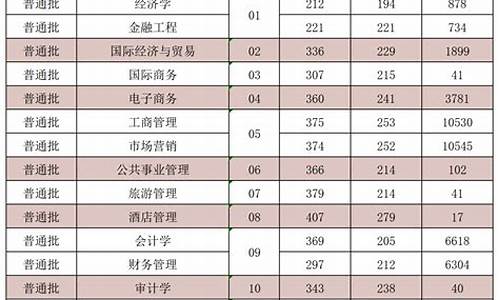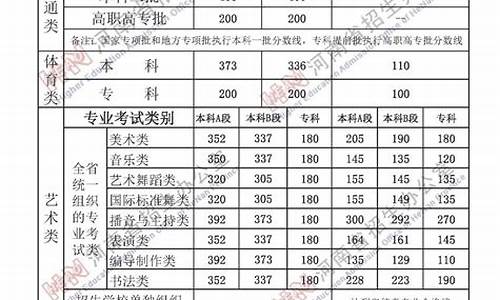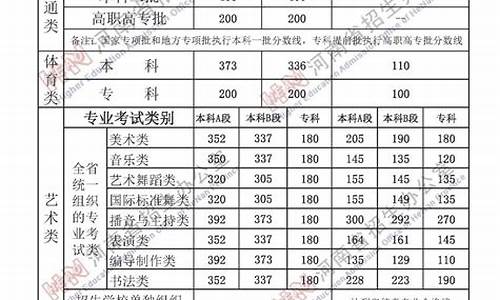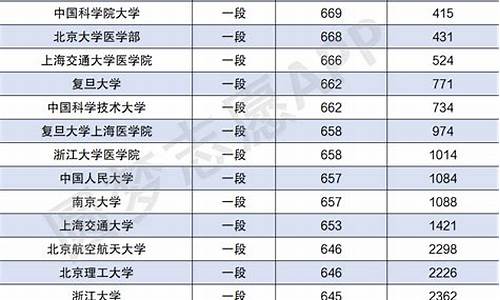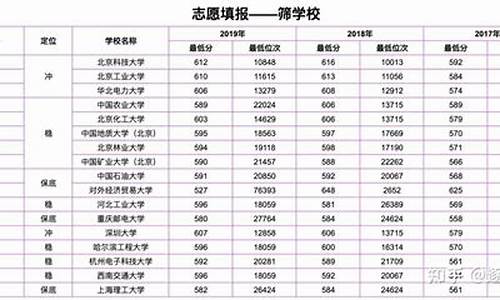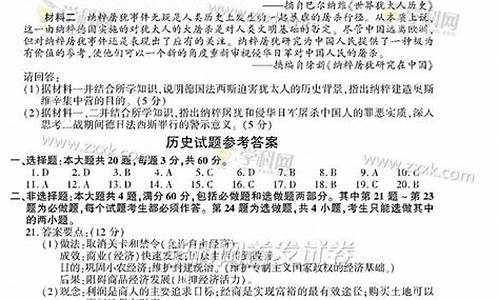高考从句历年真题及解析_高考从句大全
1.有关从句的重要知识点
2.高考英语引导名词性从句辨析
3.英语的句型句式大全
4.让你作文从low到高端的法宝――名词性从句
5.高考英语语法解析:定语从句
6.高考英语语法:高中英语语法-语法·表语从句用法小结
7.求对英语名词性从句的详细总结,高考用
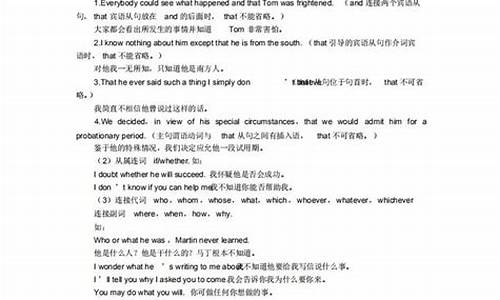
介词+关系词
1)介词后面的关系词不能省略。
2)that前不能有介词。
3) 某些在从句中充当时间,地点或原因状语的“介词+关系词”结构可以同关系副词when 和where 互换。
This is the house in which I lived two years ago.
This is the house where I lived two years ago.
Do you remember the day on which you joined our club?
Do you remember the day when you joined our club?
先行词和关系词二合一
1)Whoever spits in public will be punished here.
(Whoever 可以用 anyone who 代替)
2)The parents will use what they have to send their son to technical school.
(what 可以用all that代替)
as, which 非限定性定语从句
由as, which 引导的非限定性定语从句,as和which可代整个主句,相当于and this或and that。As一般放在句首,which在句中。
As we know, smoking is harmful to one's health.
The sun heats the earth, which is very important to us.
典型例题
1)Alice received an invitation from her boss, ___came as a surprise.
A. it B. that C. whichD. he
答案C. 此为非限定性从句,不能用 that修饰,而用which.,it 和he 都使后句成为句子,两个独立的句子不能单以逗号连接。况且选he句意不通。
2)The weather turned out to be very good, ___ was more than we could expect.
A. what B. which C. that D. it
答案B。which可代替句子,用于非限定性定语从句,而what不可。That 不能用于非限定性定语从句,it不为连词,使由逗号连接的两个句子并在一起在英语语法上行不通。
3)It rained hard yesterday, ____ prevented me from going to the park..
A. that B. whichC. as D. it
答案B.
as 和which在引导非限制性定语从句时,这两个关系代词都指主句所表达的整个意思,且在定语从句中都可以作主语和宾语。但不同之处主要有两点:
(1) as 引导的定语从句可置于句首,而which不可。
(2) as 代表前面的整个主句并在从句中作主语时,从句中的谓语必须是系动词;若为行为动词,则从句中的关系代词只能用which.。
在本题中,prevent由于是行为动词,所以正确选项应为B。
As 的用法
例1. the same… as;such…as 中的as 是一种固定结构, 和……一样……。
I have got into the same trouble as he (has).
例2. as可引导非限制性从句,常带有'正如'。
As we know, smoking is harmful to one's health.
As is know, smoking is harmful to one's health.
As是关系代词。例1中的as作know的宾语;例2中,它充当从句的主语,谓语动词know要用被动式。
关系代词that 的用法
1)不用that的情况
a) 在引导非限定性定语从句时。
(错) The tree, that is four hundred years old, is very famous here.
b) 介词后不能用。
We depend on the land from which we get our food.
We depend on the land that/which we get our food from.
2) 只能用that作为定语从句的关系代词的情况
a) 在there be 句型中,只用that,不用which。
b) 在不定代词,如:anything, nothing, the one, all, much, few, any, little等作先行词时,只用that,不用which。
c) 先行词有the only, the very修饰时,只用that。
d) 先行词为序数词、数词、形容词最高级时,只用that。.
e) 先行词既有人,又有物时。
举例:
All that is needed is a supply of oil.
所需的只是供油问题。
Finally, the thief handed everything that he had stolen to the police.
那贼最终把偷的全部东西交给了警察。
难点分析
(一)限制性定语从句只能用that的几种情况
1.当先行词是anything, everything, nothing (something 除外), few, all, none, little, some等代词时,或者是由every, any, all, some, no, little, few, much等修饰时
(1) Have you taken down everything that Mr. Li has said?
(2) There seems to be nothing that seems impossible for him in the world.
(3) All that can be done has been done.
(4) There is little that I can do for you.
注意:当先行词指人时,偶尔也可以用who
(4) Any man that/.who has a sense of duty won’t do such a thing.
2. 当先行词被序数词修饰
(1) The first place that they visited in London was the Big Ben.
3. 当先行词被形容词最高级修饰时
(1) This is the best film that I have seen.
4. 当形容词被the very, the only 修饰时
(1) This is the very good dictionary that I want to buy,
(2) After the fire in his house, the old car is the only thing that he owned.
当先行词指人时,偶尔也可以用who
(3) Wang Hua is the only person in our school who will attend the meeting/
5. 当先行词前面有who, which等疑问代词时
(1) Who is the man that is standing there?
(2) Which is the T-shirt that fits me most?
6. 当先行词既有人,也有动物或者物体时
(1) Can you remember the scientist and his theory that we have learned?
(二)关系代词as和which引导的定语从句
as和which引导非限制性定语从句,有相同之处也有不同之处。具体情况是:
1.As和which都可以在定语从句中做主语或者宾语,代表前面整个句子。
(1) He married her, as/which was natural.
(2) He was honest, as/which we can see.
2. as 引导非限制性定语从句,可放在主句之前,或者主句之后,甚至可以切割一个主句;which引导的非限制性定语从句只能放在主句之后。另外,as有“正如……,正像……”的意思
(1) As is known to all, China is a developing country.
(2) He is from the south, as we can see from his accent.
(3) John, as you know, is a famous writer.
(4) He has been to Paris more than several times, which I don’t believe.
注意:当主句和从句存在逻辑上的因果关系时,常用which
(5) Tom was always late for school, which made his teacher angry.
3. 当先行次受such, the same修饰时,常用as
(1) I have never heard such a story as he tells.
(2) He is not such a fool as he looks.
(3) This is the same book as I lost last week.
注意:当先行次由the same修饰时,偶尔也用that引导定语从句,但是和由as所引导的定语从句意思不同
(4) She wore the same dress that she wore at Mary’s wedding. 她穿着她在MARY婚礼上穿过的一条裙子。
(5) She wore the same dress as her young sister wore. 她穿着和她妹妹所穿的一样的裙子。
(三)以the way为先行词的定语从句通常由in which, that引导,而且通常可以省略。
(1) The way in which/ that/./ he answered the question was surprising.
(四) but有时也可以做关系词引导定语从句
(1) There are very few but understand his idea. ( but= who don’t )
(五) 区分定语从句和同位语从句
1.定语从句修饰先行词,它和先行词是修饰关系;同位语从句说明先行词的具体内容,是补充说明的关系
(1) The plane that has just taken off is for London. 定语从句
(2) The fact that he has been dead is clear. 同位语从句
2.定语从句由关系代词或者关系副词引导,关系词在句中充当成分,有时可以省略;同位语从句主要由that引导,在句中一般不做成分;句子也可以由when, where, how, why, whether, what等词引导,充当成分
(1) The news he told me is true.
(2) The news that he has just died is true.
(3) The problem that we are facing now is how we can collect so much money. 定语
(4) The problem how we can collect so much money is difficult to solve.
3. 同位语从句和先行词一般可以用be动词发展成一个完整的句子,而定语从句不可以
(1) The idea that we could ask the teacher for advice is wonderful. 同位语
(2) The idea was that we could ask the teacher for advice.
(3) The fact that the earth moves around the earth is known to all.
(4) The fact is that the earth moves around the earth.
有关从句的重要知识点
1 A Who或What引导的特殊疑问句中的定语从句为了避免重复,只用that引导,由于关系代词在从句中作主语,所以不能省略。
2 B 当先行词被the only,the very, the just, the last, the right修饰时,只能that引导定语从句。
3 B 这是由“介词+关系代词”引出的定语从句,因为要译为“到......为止”且从句用于完成时,所以用by。
高考英语引导名词性从句辨析
从句分为三种:状语从句,定语从句和名词性从句。名词性从句是一种具有名词功能的非独立分句,它在复合句中能担任主语、宾语、表语、同位语、介词宾语等,因此根据它在句中不同的语法功能,名词从句又可分别称为主语从句、宾语从句、表语从句同位语从句。
名词性从句一向是NMET中的重要考点.通过对近几年高考试题的分析,名词性从句主要考察:语序问题,连接词的选用,从句的时态和语态问题,还有就是名词性从句与其他从句特别是定语从句的区别,我们先看一下一组句子:
1 .a we know, there is no life on the Mars
a.as b.which c.what d. that
2. What we know is that there is no life on the Mars.
3 .As is known ,there is no life on the moon.
4 .It is known that there is no life on the Mars
5 What is known is that there is no life on the Mars.
我觉得这组句子是复习名词性从句的很好的例子,它主要考察的是名词性从句与其他从句的区别和连接词的选择,既然名词性从句在句子中担任主语、宾语、表语、同位语、介词宾语,所以除充当同位语从句外,它在句中在语法上或意义上是不可缺少的。如上述的2,4,5题,在确定了从句类型之后,我们再确定连接词,连接词分为:
1.从属连词(只起引导作用不充当成分的that, whether和 if,as if只引导表语从句)
2.连接代词(what, whatever, who, whoever, whom, whose, which)
3.连接副词(when, where, how, why)
下面我们来具体谈谈名词性从句:
(一) 主语从句
在句中充当主语的从句是主语从句。
That we should use modern technology is a big issue.(that 引导主语从句不可省)
Whether he will come is not clear.(引导主语从句的whether放在句首不能用if 代替)
What surprised me most was that such a little girl could play the violin so well.
Whatever was said here must be kept secret.
When he will come is still unknown.
It is necessary that we should learn some English grammar.
一般来讲what/who等含特指意义,whatever/whoever等含泛指意义,意为“无论….”
It is generally considered unwise to give a child __C__he or she wants.
A. however B What C whatever D whichever
在主语从句中还要特别注意it作形式主语的情况,用 it 作形式主语的that- 从句有以下四种不同的搭配关系:
a. It + be +形容词+ that-从句It is necessary/ important / obvious that…
It is obvious that conductors and insulators are both important in industry.
很明显导体和绝缘体在工业中都很重要。
b. It + be + -ed 分词+ that-从句It is believed/ known to all /said/ reported that…
It is thought that he is the best player
大家都认为他是最好的选手
C.It + be +名词+ that-从句It is common knowledge/ a surprise / a fact that
It is common knowledge that the whale is not a fish
鲸鱼不是鱼,这是常识
d. It +不及物动词+ that-分句It appears/ happens/ occurred to me that…
It now appears that they are in urgent need of help.
看起来他们急需帮助。
(二) 宾语从句
宾语从句在句中充当宾语的成分。宾语从句可作谓语动词的宾语,也可作介词的宾语,也可作动词不定式等非谓语动词形式的宾语,还可作某些形容词的宾语从句。
Jenny thought (that) her teacher was unfair.
It all depends on whether they will support us.(不能用if替代,作介词宾语不能用if)
I am sure (that) he won’t mind.
(三)表语从句
放在系动词后作表语的从句。
The reason why the little actress has been such a success is that she is both clever and hard-working.
That’s what he is worried about.
That’s why I was late.
(四) 同位语从句
在复合句中用作同位语的从句叫同位语从句。它一般跟在某些名词后面,用以说明该名词表示的具体内容。可以跟同位语从句的名词通常有new,idea,fact,promise,question,doubt,thought,hope,message,suggestion,word(消息),possibility等。
The idea that England stands for fish& chips…is past.(高二课文unit5 THE BRITISH ISLES)
The problem whether we should continue to do the experiment has been solved.(不能用if)
名词性从句中的需要注意的以下三点:
(1) what与that
what 在名词性从句中要充当成分,that 在名词性从句中不充当成分也没有意义,只起连接作用,但连接主语从句以下几种情况that不可省:
a.引导主语从句放在句首时。
b.当一个句子有两个或多个并列的宾语从句时,引导第二个和以下几个从句的that不可省略。
c.由it作形式宾语时,引导的宾语从句中,that不可省。
d.引导同位语从句时,that不可省。
(2) whether与if
whether与if 均为"是否"的意思。 但在下列情况下,whether 不能被if 取代:
a. whether引导主语从句并在句首
b. 引导表语从句
c. whether从句作介词宾语
d. 从句后有"or not"
Whether he will come is not clear.
(3) Suggest, order 等其相关词性的相应的名词性从句的时态。
表示建议,命令,要求的动词的宾语从句,名词的表语从句,同位语从句的时态要用should do, should可以省略。
I suggest that we (should) hold a meeting next week。
The suggestion that he be invited was rejected。
从句的学习非一日之功,平时应加强对从句语法特征和意义特征的思考。对于从句,我们应先确定从句的类型,回忆相关用法,再确定正确的选项。
英语的句型句式大全
#高考# 导语英语是高考备考的重点,也是难点,很多词,英语易错词汇短语同学们分不太清楚,为帮助同学们解决这一重点难点, 考 网整理了《高考英语易错词汇短语辨析》,供参考。whatever,whoever,whichever引导名词性从句
一、基本用法概说
英语中的-ever 词主要包括 whatever, whoever, whichever, whenever, wherever, however 等,其中可引导名词性从句的主要有whatever, whoever,whichever.这里所说的名词性从句主要指主语从句和宾语从句,它们通常不用于引导同位语从句,同时也很少用于引导表语从句。如:
Whatever he said was right. 无论他说什么都是对的。(引导主语从句)
I don‘t believe whatever he said. 无论他说什么我都不信。(引导宾语从句)
在某些特定的语境中,也可用于引导表语从句。如:
What he wants to get is whatever you have. 他想得到的是你所拥有的一切。
二、whatever引导的名词性从句
whatever的意思是“所……的一切事或东西”,可视为what的强调说法,其含义大致相当于anything that,whatever在从句中可用作主语、宾语、定语。如:
Do whatever she tells you and you‘ll have peace. 她叫你干什么你就干什么,那你就太平了。
I don‘t believe in letting children do whatever they like. 我不赞成让孩子为所欲为。
Goats eat whatever food they can find. 山羊找到什么食物就吃什么食物。
三、whoever引导的名词性从句
whoever的意思“任何……的人”,在意义上大致相当于 anybody who.whoever在从句中可用作主语或宾语。如:
I‘ll take whoever wants to go. 谁想去我就带谁去。
Whoever says that is a liar. 说那话的人是个骗子。
She can marry whoever she chooses. 她愿意嫁谁就嫁谁。
I‘ll give the ticket to whoever wants it. 谁想要这票,我就把它给谁。
Tell whoever you like — it makes no difference to me. 你爱告诉谁就告诉谁吧,对我是无所谓的。
注:whoever既用作主语也可用作宾语(作宾语时不宜用whomever,因为在现代英语中whomever已几乎不用)。另外,注意以下受汉语意思影响而弄错的句子:谁赢了都可以获奖。
误:Who wins can get a prize.误:Anyone wins can get a prize.正:Whoever wins can get a prize.正:Anyone who wins can get a prize.
四、whichever引导的名词性从句
whichever的意思“……的那个人或事物”,在意义上大致相当于 the person or the thing that.whichever在从句中可用作主语、宾语或定语。如:You can pick whichever one you like. 你喜欢哪个就挑哪个。
Whichever of you comes first will receive a prize. 你们谁第一谁就能得奖。
We‘ll eat at whichever restaurant has a free table. 哪个饭馆有空桌我们就在哪儿吃吧。
Whichever of us gets home first starts cooking. 我们当中无论哪个先到家,哪个就先开始做饭。
五、引导状语从句的用法
whatever, whoever, whichever除用于引导的名词性从句外,还可用于引导状语从句,分别相当于 no matter what, no matter who, no matter which.如:I‘ll stand by you whatever [=no matter what] happens. 无论如何我都支持你。
Whoever [=No matter who] wants to speak to me on the phone, tell them I‘m busy. 不管谁要我接电话,就说我现在正忙。
Whichever [=No matter which] you buy, there is a six-month guarantee. 不管买哪个都有六个月的保修期。
让你作文从low到高端的法宝――名词性从句
英语的句型句式大全如下:
1、名词性从句:是在句子中起名词作用的句子。名词性从句的功能相当于名词词组,它在复合句中能担任主语、宾语、表语、同位语、介词宾语等。
2、同位语从句:指在复合句中充当同位语的从句,属于名词性从句的范畴。同位语从句用来对其前面的抽象名词进行解释说明,被解释说明的词和同位语在逻辑上是主表关系。
3、表语从句:用作表语的从句叫做表语从句。引导表语从句的关联词与引导主语从句的关联词很多都一样。
4、定语从句:是由关系代词或关系副词引导的从句,其作用是作定语修饰主句的某个名词性成分,相当于形容词,所以又称为形容词性从句,一般紧跟在它所修饰的先行词后面。
5、状语从句:用作状语的从句叫做状语从句,其关联词是一些从属连词。修饰主句中的动词、形容词和副词,通常由从属连词引导,按其意义和作用可分为时间、地点、条件、原因、让步、目的、结果、方式、比较状语从句等。
6、主从复合句:含有一个独立的从句,且至少有一个。两个从句由一个从属连词(如which、who、although、despite、if、since等)连接起来。
高考英语语法解析:定语从句
每每看着你自己那一“I” 到底,满是I can, I will的作文,再看看别人家那满是你读都读不懂的长句子作文,你是否也会有这样的感叹:“老铁,扎心了。”
别羡慕他们,真的,你已经学会了定语从句,今天再来一法宝——名词性从句,你也能变身为他眼中的奥特曼!
名词性从句概览
在复合句中起名词作用的从句叫名词性从句 (Noun Clauses)。名词从句的功能相当于名词词组, 它在复合句中能担任主语、宾语、表语、同位语、介词宾语等,因此根据它在句中不同的语法功能,名词从句又可分为:主语从句、宾语从句、表语从句和同位语从句。
1).How the book will sell depends on its author. (主语位置,主语从句)
2).John said that he was leaving for London onWednesday. (谓语动词后面,宾语从句)
3).The fact is that he has not been seen recently. (系动词后面,表语从句)
4).He will talk to us about what he saw in U.S.(介词后面,宾语从句)
5).It is impossible that I go and attend themeeting. (主语从句)
6). The fact that hehad not said anything surprised everybody. (同位语从句)
名词性从句连接词的用法
连接词:1. that; 2. whether; 3. what/where/when/which/wh-ever/
however
可使用的名词性从句: 1.主、宾、表、同; 2.主、宾、表、同; 3.主、宾、表、(同)
是否充当从句的句子成分: 1.否;2. 否;3. 是
可否省略:1.动词后宾从中可省;2.否; 3.否
可否用其他词代替1.否 ;2.动词后宾从可用it代替; 3.否
以上连接词的共同作用是:连接主句和从句(连接作用)
连接词的选用
1.that/what的选用
that 和 what都可引导所有的名词从句。但是,what除起连接作用外,还在名词性从句中_作成分_,可做从句的主语、宾语、或表语。而that在名词性从句中_不作成分_。
1).______ he wants is a book.
2). ______? he wants to go there is obvious.
3).The result is ______ we won the game.
4).This is _____ we want toknow.
5).We should pay attention to ______ the teacher is saying.
6). We are interested in the news______ some foreigners would visit our school.
2.if/whether的选用
1). I asked her __________she had a bike.
2). We’re worried about________ he is safe.
3). ________? we will hold a party in the open air tomorrow depends on the weather.
4). The question is_________ he should do it.
5). I don’t know ___________ he is well or not.
6). I don’t know _______ to go.
Summary 总结 (不能使用if 的情况):
总结:1). if只能用在动词后的宾语从句,不能用在介词后的宾语从句
2).if 不能用在主语从句中
3). if 不能用在表语从句中
4). whether or not 连在一起引导宾语从句时不用if.
5). whether to do 做动词宾语, 不能用if todo.
3.其他连接代词和连接副词的选用
主要根据名词性从句中的具体意义,正确的选择who、which、when、where、why、how 等连接词,这些连接词既具有疑问含义,又起连接作用,同时在从句中充当各种成分。
我们何时举行运动会还没有决定。________ we shall hold our sports meeting is notdecided.
我不知道昨天谁打破了玻璃。I don’t know _________ broke the glass yesterday.
我不知道他长的什么样子。I have no idea _________ he looks like.
这就是我忘记眼镜的地方。This is _________ I left my glasses.
主要考点
考点1. 语序问题
名词性从句在句中要用_陈述___语序,从句的引导词必须始终置于从句的句首。
1).No one can be sure ____ in a million years.
what will man look like? B. what man will look like
C. man will look like what D. what look will man like
2).You can’t imagine ____ when they received thesenice Christmas presents.
A. how they were excited B. how excited they were
C. how excited were they ? D. they were how excited
考点2. 时态问题
1). He said that he will go tothe station. 改错()
2). Our physics teacher once told us that light__________ ( travel ) faster than sound.
3). Tom says that Mary ____ (go) abroad last year and _________ (be)there for nearly 5 months
总结:1)主句的动词用过去时,从句谓语动词用过去的某种时态;
2)主句的动词用过去时,从句表示客观事实,格言,谚语等,从句谓语动词用一般现在时;
3)主句的动词用一般现在时,从句谓语可根据需要选用各种时态。
考点3. 主谓一致问题
何时开会还没有决定。 When the meeting will begin _____(have) not been decided yet
他们何时出发和他们去哪里还没有决定。When they will start and where they will go______(have) been still unknown.
何时何地开会还没有决定When and where the meeting will begin _____ (have) not been decided yet.
总结:单个的主语从句作主语时,谓语动词一般用单数形式。
如果是两个或两个以上的主语从句作主语,谓语动词则用复数形式。
由两个或多个连接词引导一个主语从句,谓语动词用单数形式。
考点4. it作形式宾语和形式主语问题
1). I think_____ worthwhile that we spent so much money on these books.
2). _____ is hard to decide when and where we will held our sports meeting.
总结:当主语从句较长,而谓语较短时,常常将从句_放后_,而用it 作为形式主语置于句首。it也可作形式宾语。
高考链接
1). It iso bvious to the students ______ they should get well prepared for theirfuture.
A. as ? B. which ? C. whether ? D. that
2). When asked _____ they needed most, the kids said they wanted to feel important and loved.
A. what B. why C. whom D. which
写作升华
写作中,得高分的方法之一: 改造低级句型,让你的英语靓起来
原句: 1)He gave me something.? 2)It was a Christmas present and a heart full oflove.
改装后:What hegave me was a heart s not only aChristmas present but also full of love
原句: 1)Some of the happiest people in the world are thosepeople.
2)Those people help to bring happiness to others.? 3)Volunteersbelieve it .
改装后:1)Some of the happiest people in the world are thosewho help to bring happiness to others. .
2)Volunteers believe that some of the happiest peoplein the world are those who help to bring happiness to others.
THE KEY:? 1. what, that, that,what, what, that? 2. if/wheter, 其余都是whether? 3. when,who, what, where
1. BB? 2. will 改为would, travels, went, has been 3. has, have, has 4. it, It 高考链接: DA
怎么样,新技能get到木有,快回家试着改改你的作文吧,争取下次亮瞎老师的——(呃 ?)老眼!
?
高考英语语法:高中英语语法-语法·表语从句用法小结
#高考# 导语定语从句,一个句子跟在一名词或代词(先行词)后进行修饰限定,就叫做定语从句。通俗来讲,从句在整个句子中做定语,这个从句就叫做定语从句。在主句中充当定语成分。 被修饰的词叫先行词。定语从句不同于单词作定语的情况,它通常只能放在被修饰的词(即先行词)之后。
篇一
问1:何谓定语从句?
答:修饰先行词的从句就叫定语从句。
问2:定语从句分为几种类型?
答:定语从句可分为限制性定语从句和非限制性定语从句。
问3:限制性定语从句的构成要素有哪些?
答:限制性定语从句的构成要包括先行词和关系词。
问4:什么叫先行词?
答:被定语从句修饰的名词或代词就叫先行词。
问5:什么关系词?
答:引导定语从句的词就叫关系词。
问6:关系词是如何分类的?
答:关系词可分为关系代词和关系副词。
问7:关系代词包括哪些?
答:关系代词包括that,which,who,whom,whose和as.
问8:关系副词包括哪些?
答:关系副词包括when,where和why.
篇二
问1:关系代词that和which的区别有哪些?
答:1、只要关系代词that的主要情况如下:
(1)先行词是不定代词all,anything,everything,little,much,nobody,nothing等时;
(2)先行词被不定代词any,no,all等修饰时;
(3)先行词被the last,the only,the very,just the 等修饰时;
(4)先行词被序数词修饰时;
(5)先行词被形容词级修饰时;
(6)先行词既指人又指物时;
(7)以who或whic引导的疑问句中。如:Who is the man that is standing over there?
Which is the book that you would like to take away?
答:2、只用关系代词which的情况如下:
(1)在非限制性定语从句中(定语从句前有逗号)
(2)介词后
篇三
问1:关系副词有哪些?它们分别怎么样?
答:关系副词包括表示时间的when,表示地点的where和表示原因的why.
问2:关系副词在限制性定语从句中可以转换为什么?
答:在限制性定语从句中,关系副词都可以转换为相应的介词加关系代词。
问3:关系副词why可以转换为什么?
答:关系副词why可以用for which来替换。
篇四
问1:先行词是those时,用哪个关系代词?
答:遇到先行词是those时,用关系代词who.还是先让我们来看个例子吧。
Gold help those who help themselves.
上帝帮助自强的人(自助者天助)。
问2:先行词是he时,用哪个关系代词?
答:先行词是he时,用关系代词who.我们来看两个例句。
He who doesn't reach the Great Wall is not a true man.
不到长城非好汉。
He whoinsists on seing with perfect clearness before he decides never decides.
坚持一切看清楚之后才做决定的人永远也做不了决定。
问3:关系代词whose该怎么样?
答:关系代词whose后既可以接人也可以接物。
That's the man whose house has burned down.
那就是那位房屋烧毁的人。
Have you noticed the house whose windows are closed now?
你注意到了那家窗户关着的房子了吗?
问4:定语从句中的whose+名词可以用什么替换?
答:whose+名词(人/物)
=of which/whom the +名词
=the +名词 of which/whom
注意:whose后面接单数名称还是复数名词,转换时也应写成相应的单复数
篇五
问:限制性定语从句和非限制性定语从句有哪些区别?
答:限制性定语从句和非限制性定语从句区别在于:
(1)从形式上看
主从句之间是否有逗号隔开,如果有逗号,则为非限制性定语从句
(2)从逻辑关系看
主从句之间关系松散则为非限制性定语从句
(3)从翻译角度看
先翻译定语从句为限制性定语从句;各自翻译的为非限制性定语从句
让我们来看看一些例句吧。
Those who want to go camping please tell the monitor.
想去野营的人请告诉班长。
这个例句就是典型的限制性定语从句,先行词为those,关系代词是who.
Football,which is a very interseting game,is played all over the world.
足球风靡全世界,它是一项很有趣的运动。
本句话是一个典型的非限制性定语从句,主从句关系松散。
篇六
问:介词+which/whom引导的定语从句是怎么一回事?
答:如果关系代词which/whom本身在定语从句中充当一个介词或介词短语的宾语时,有时可以将介词直接放在which/whom的前面,这样就出现了“介词+关系代词”及“名词或代词+which/whom”或“复合介词+which/whom”等的结构。
例如:
(1)I know the man to whom you talked juest now.
我认识你刚才与之说话的那个人。
(2)Life is a flower of which love is honey.
人生是朵花,爱情是花蜜。
(3)Soon they spotted a mountain,on top of which stood a temple.
不久他们发现了一座山,山顶上有座庙。
(4)It's a family of five childre,all of whom are studying music.
这一家有三个孩子,他们都在学音乐。
(5)In the box we found some apples,none of which was fit to eat.
在箱子里我们发现了一些苹果,其中没有一个能吃的。
注意:指人时,该结构关系代词必须用whom,指物时,关系代词必须用which
篇七
现在就与各位分享关系副词where修饰一些具有抽象意义的表地点的名词,如situation,point,position,system等。
让我们来看一些例句吧。
If you are ever in a situation where someone starts shooting,drop to the ground.
如果你遇到有人要射击的情况就倒在地上。
But after a few days' stay they got to the point where they could read each other's thoughts.
不过待了几天之后,他们到了一个相互理解彼此想法的阶段。
It ot to the point where I couldn't remember any of the reasons I loved him.
到那时候,我无法记起我爱他的任何理由了。
求对英语名词性从句的详细总结,高考用
《高中英语语法-语法·表语从句用法小结》由出国留学我精心为您学习英语准备.liuxue86.com。本内容整理时间为05月12日,如有任何问题请联系我们。
语法?表语从句用法小结
一、表语从句的定义:
表语从句放在连系动词之后,充当复合句中的表语。
二、表语从句的构成:
关联词+简单句
三、引导表语从句的关联词的种类:
1. 可接表语从句的连系动词有be,look,seem,sound,appear等。
China is no longer what she used to be.
今日的中国不再是过去的中国了。
The question remains whether they will be able to help us.
问题还是他们能否帮我们。
At that time,it seemed as if I couldn't think of the right word.
当时,我似乎怎么也想不出一个恰当的字眼来。
2. 从属连词whether,as,as if / though引导的表语从句。
He looked just as he had looked ten years before.
他看起来还与十年前一样。
It sounds as if someone is knocking at the door.
听起来好像有人在敲门。
3. because,why引导的表语从句。
That's because he didn't understand me.
那是因为他没有理解我。(That's because?强调原因)
That's why he got angry with me.
那正是他对我生气的原因。(That's why?强调结果)
what引导的主语从句表示结果或名词reason作主语时,后面的表语从句表示原因时要用that引导,不宜用because.
The reason why I was sad was that he didn't understand me.
我难过的原因是他没有理解我。
4. 连接代词who,whom,whose,what,which,whoever,whatever,whichever
连接副词 where,when,how,why
The problem is who we can get to replace her.
问题是我们能找到谁去替换她呢。
The question is how he did it.
问题是他是如何做此事的。
That was what she did this morning on reaching the attic.
那就是她今晨上了阁楼干的。
5. 从属连词that
The trouble is that I have lost his address.
麻烦是我把他的地址丢了。
6. 使用虚拟语气的表语从句
在表示建议、劝告、命令含义的名词后的表语从句,谓语动词需用?should+动词原形? 表示,should可省略。常见的词有:advice,suggestion,order,proposal,plan,idea等。
My suggestion is that we (should) start early tomorrow.
我的建议是我们明天一早就出发。
四、应注意的问题:
1. 连系动词be,appear,seem,look等之后可以跟表语从句。
It was because he didn't pass the exam.
那是因为他没有通过考试。
It seems(that)he was late for the train.
看来他没搭上火车。
It appears that she was wrong.
看来她错了。
It seems to me that we should answer for this.
在我看来,我们似乎应该对此事负责。
It appears to her that he wants to teach us all he has.
在她看来,他似乎要把他所会的都教给我们。
2. 引导表语从句的引导词有以下几类。
1)wh-疑问词
My question is who left.
我想问的是谁离开了。
What I wonder is when he left.
我想知道他是何时离开的。
That's what he wants.
那是他想要的。
This is where they once lived.
这就是他们曾经住过的地方。
That is why he didn't come here. 这就是他为何没到这儿来的原因。
2)whether
My question is whether he left(or not)。 我的问题是他是否离开了。
注:if不能引导表语从句。
3)that
The fact is that he left. 事实是他离开了。
注:引导表语从句的连词that间或可以省略。
The truth is(that)I didn't go there. 事实是我没去那儿。
4)because,as,as if,as though
It's just because he doesn't know her. 这是仅仅因为他不认识她。
Things are not always as they seem to be. 事物并不总是如其表象。
He looks as if he's tired. 他好像累了。 《高中英语语法-语法·表语从句用法小结》由出国留学我精心为您学习英语准备.liuxue86.com
名词性从句是由if, whether, that 和各种疑问词充当连接词所引导的从句,其功同名词一样。
一.主语从句
主语从句是在复合句中充当主语的从句,通常放在主句谓语动词之前或由形式主语it代替,而本身放在句子末尾。
1. It 作形式主语和it引导强调句的比较
It 作形式主语代替主语从句,主要是为了平衡句子结构,主语从句的连接词没有变化。而it引导的强调句则是对句子某一部分进行强调,无论强调的是什么成分,都可用连词that。被强调部分指人是也可用who/whom。例如:
It is a pity that you didn’t go to see the film.
It doesn’t interest me whether you succeed or not.
It is in the morning that the murder took place.
It is John that broke the window.
2. 用it 作形式主语的结构
(1) It is +名词+从句
It is a fact that … 事实是…
It is an honor that …非常荣幸
It is common knowledge that …是常识
(2) it is +形容词+从句
It is natural that… 很自然…
It is strange that… 奇怪的是…
(3) it is +不及物动词+从句
It seems that… 似乎…
It happened that… 碰巧…
(4) it +过去分词+从句
It is reported that… 据报道…
It has been proved that… 已证实…
3. 主语从句不可位于句首的五种情况
(1) if 引导的主语从句不可居于复合句句首。
(2) It is said , (reported) …结构中的主语从句不可提前。例如:
It is said that President Jingo will visit our school next week. (right)
That President Jiang will visit our school next week is said. (wrong)
(3) It happens…, It occurs… 结构中的主语从句不可提前。例如:
It occurred to him that he failed in the examination. (right)
That he failed in the examination occurred to him. (wrong)
(4) It doesn’t matter how/whether …结构中的主语从句不可提前。例如:
It doesn’t matter whether he is wrong or not. (right)
Whether he is wrong or not doesn’t matter. (wrong)
(5) 含主语从句的复合句是疑问句时,主语从句不可提前。例如:
Is it likely that it will rain in the evening? (right)
Is that will rain in the evening likely? (wrong)
4. What 与that 在引导主语从句时的区别
What 引导主语从句时在句时在从句中充当句子成分,如主语.宾语.表语,而that 则不然。例如:
1) What you said yesterday is right.
2) That she is still alive is a consolation.
二.宾语从句
宾语从句就是在复合句中作宾语的名词性从句,通常放在主句谓语动词(及物动词)或介词之后。
1. 作动词的宾语
(1) 由that引导的宾语从句(that 通常可以省略),例如:
I heard that be joined the army.
(2) 由what, whether (if) 引导的宾语从句,例如:
1) She did not know what had happened.
2) I wonder whether you can change this note for me.
(3) 动词+间接宾语+宾语从句。例如:
She told me that she would accept my invitation.
2. 作介词的宾语
例如:Our success depends upon how well we can cooperate with one another.
3. 作形容词的宾语
例如:I am afraid (that) I’ve made a mistake.
That 引导的从句常跟在下列形容词后作宾语:
Anxious, aware, certain, confident, convinced, determined, glad, proud, surprised, worried, sorry, thankful, ashamed, disappointed, annoyed, pleased, hurt, satisfied, content 等。也可以将此类词后的that 从句的看作原因状语从句。
4. It 可以作为形式宾语
It 不仅可以作为形式主语,还可以作为形式宾语而真正的宾语that 从句则放在句尾,特别是在带复合宾语的句子中。 例如:
We heard it that she would get married next month..
5. 后边不能直接跟that 从句的动词
这类动词有Allow, refuse, let, like, cause, force, admire, condemn, celebrate, dislike, love, help, take, forgive等。这类词后可以用不定式或动名词作宾语,但不可以用that引导的宾语从句。例如:
I admire their winning the match. (right)
I admire that they won the match. (wrong)
6. 不可用that从句作直接宾语的动词
有些动词不可用于“动词+间接宾语+that从句“结构中,常见的有Envy, order, accuse, refuse, impress, forgive, blame, denounce, advise, congratulate等。例如:
He impressed the manager as an honest man. (right)
He impressed the manager that he was an honest man. (wrong)
7. 否定的转移
若主句谓语动词为Think, consider, wuppose, believe, expect, fancy, guess, imagine等,其后的宾语从句若含有否定意义,一般要把否定词转移到主句谓语上,从句谓语用肯定式。例如:
I don’t think this dress fits you well.(我认为这件衣服不适合你穿。)
三.表语从句
表语从句在复合句中作表语的名词性从句,放在系动词之后,一般结构是“主语+连系动词+表语从句”。可以接表语从句的连系动词有be, look, remain, seem等。引导表语从句的that常可省略。另外,常用的还有the reason is that… 和It is because 等结构。例如:
1) The question is whether we can make good preparation in such a short time.
2) This is why we can’t get the support of the people
3) But the fact remains that we are behind the other classes.
4) The reason he is late for school is that he missed the early bus.
四.同位语从句
同位语从句就是在复合句中作名词的同位语的名词性从句。
1. 同位语从句的功能
同位语从句对于名词进一步解释,说明名词的具体内容,一般由that引导,例如:
1) The king’s decision that the prisoner would be set free surprised all the people.
2) The order that all the soldiers should stay still is given by the general.
2. 同位语在句子中的位置
同位语从句有时可以不紧跟在它所说明的名词后面,而是被别的词隔开。例如:
He got the news from Mary that the sports meeting was put off.
3. 同位语从句与定语从句的区别
(1) 定语从句中的that既代替先行词,同时以在从句中作某个成分(主语或宾语),而同位语从句中的that是连词,只起连接主句与从句的作用,不充当句中任何成分。
(2) 定语从句是形容词性的,其功能是修饰先行词,对先行词加以限定,描述定的性质或特征;同位语从句是名词性的,其功能是对名词进行补充说明。例如:
1) The news that he told me is that Tom would go abroad next year.(他告诉我的消息是汤姆明年将出国。)(第一个that引导的从句是定语从句,that在从句中作宾语)
2)The news that Tom would go abroad is told by him.(汤姆将出国的消息是他讲的。)(同位语从句,that在句中不作任何成分)
这里也有
声明:本站所有文章资源内容,如无特殊说明或标注,均为采集网络资源。如若本站内容侵犯了原著者的合法权益,可联系本站删除。



